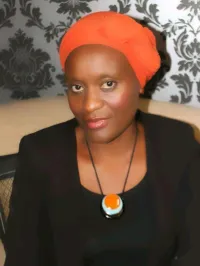Blog
How we think about mental health impacts our well-being. In these pages I offer my perspective - an African-centered, black-centered view of us and of what makes us well. an alternative path to healing both the personal and the collective.

The 6 Pillars of My Therapy Practice
It has been said that there are as many ways to practice psychotherapy as there are individuals practicing it. The field of psychology and related professions is a notoriously divided and fragmented one, with an abundance of theoretical and practical approaches to fit any personality. The beauty of practicing psychotherapy, for me, lies in the possibility of tailoring my practice to my own view of the world and of what it means to be human. This ensures that I am working according to my values, that I attract clients who are looking for exactly what I have to offer, and that I look forward to going to work every day.
Built on a sound clinical foundation based on my training as an integrative psychotherapist in the psychodynamic, existential, and humanistic traditions; my practice has 6 pillars. These 6 elements drive the way I engage with my clients and endeavor to support them in healing mental health problems, cultivating well-being and getting to know themselves. Above and beyond these pillars, I work with black women from a womanist and pan-Africanist perspective.
Here are the 6 pillars of my psychotherapy practice:
Identity
While identity is not all of who we are, it is an important part of it. We are all human and that unites us, but we are more than that. We are many things at once. What gender, race, nationality, culture, religion or spiritual tradition, sexuality, or any other aspect of our identity we are born into matters greatly to who we are in the world. If it didn’t, we would not incarnate in all these different ways. Whether we define ourselves within the constraints of those identifiers, beyond them, or in opposition to them, they contain the energy we need to forge a life of meaning. For this reason, identity is at the heart of my practice.
Self-definition
Closely linked to identity is self-definition, which I have also written about in this blog post. Many of us have internalized definitions of us formulated by others and imposed on us. Sometimes those definitions come from family, sometimes from those we see as friends. They can also come from our communities, institutions, and systems that were designed to control us. For black people, particularly in the West, those external definitions expressed as widespread stereotypes in their mildest form and as institutional violence in their vilest; can become a real or virtual prison. But whether we see ourselves in limiting ways defined by family and community, or by institutions; the ultimate result is the same: a loss of power. The best antidote for this kind of powerlessness is self-definition. Through therapy, I help women undertake the arduous and liberating work of defining themselves.
Cultural Understanding and Sensitivity
Psychotherapy, as it is practiced today, is a largely white, female, cis-gender, middle-class activity. That is to say that most psychotherapists and their clients are white middle-class women. Psychotherapeutic theory developed by and for white middle to upper class populations often misses the mark when it comes to people of color or anyone whose experience lies outside the white middle-class paradigm. For this reason, many black people rightly question whether therapy is for them. I believe that the key is in not accepting theories blindly, but rather adapting them to our own needs and experience, what we know about ourselves. Any theory or practice that invalidates our culture and our personhood is not useful to us. And so, I bring to my clients, in addition to my general therapeutic skills, my experience and multicultural understanding of the black experience.
Decolonizing the Mind
As people of African descent, we have all been colonized. One of the most nefarious effects of colonization, which was intentional, and the legacy of which is alive and well, is the internalization of the abusive stereotypes and ideas about what it means to be black and African. This ensured that we continued to abuse, discriminate, and oppress ourselves even in the absence of the colonizer. There are many small ways in which we practice this internalized oppression daily, and it is often unconscious. In my healing work with black women, I make sure that this aspect of our mental health is also addressed.
Personal Power
While there are external power structures that impinge on our existence, there is a far softer but greater power inside each and every one of us. Through introspection, through looking deeply within, we can tap into that power. Psychotherapy being an excellent tool for introspection, I use it to help my clients develop and strengthen their inward gaze so that they can come into contact with their own inner power. Your personal power can guide you through adversity and help you navigate external power structures from a place of strength and of knowing that there is always a degree of choice in how we face adversity.
Spiritual development
As human beings we exist in 4 planes: physical (body), mental (thoughts), emotional (feelings), and spiritual (soul/spirit). Unfortunately, our ‘modern’ way of viewing ourselves separates these 4 aspects of our nature and deals with them separately. That is the first problem. The second problem is that, of the four, the physical gets the most attention, the mental comes next (we invest great amounts of resources to develop our intellect), and the emotional comes third. The spiritual, however, is highly neglected and poorly valued in society. As a result, most of us are very disconnected from our spirituality. Most of my clients are looking for some form of spiritual development and I offer them the space to explore this part of their Selves within the context of the other three aspects.
Copyright © 2024 Yema Ferreira, All rights reserved.
